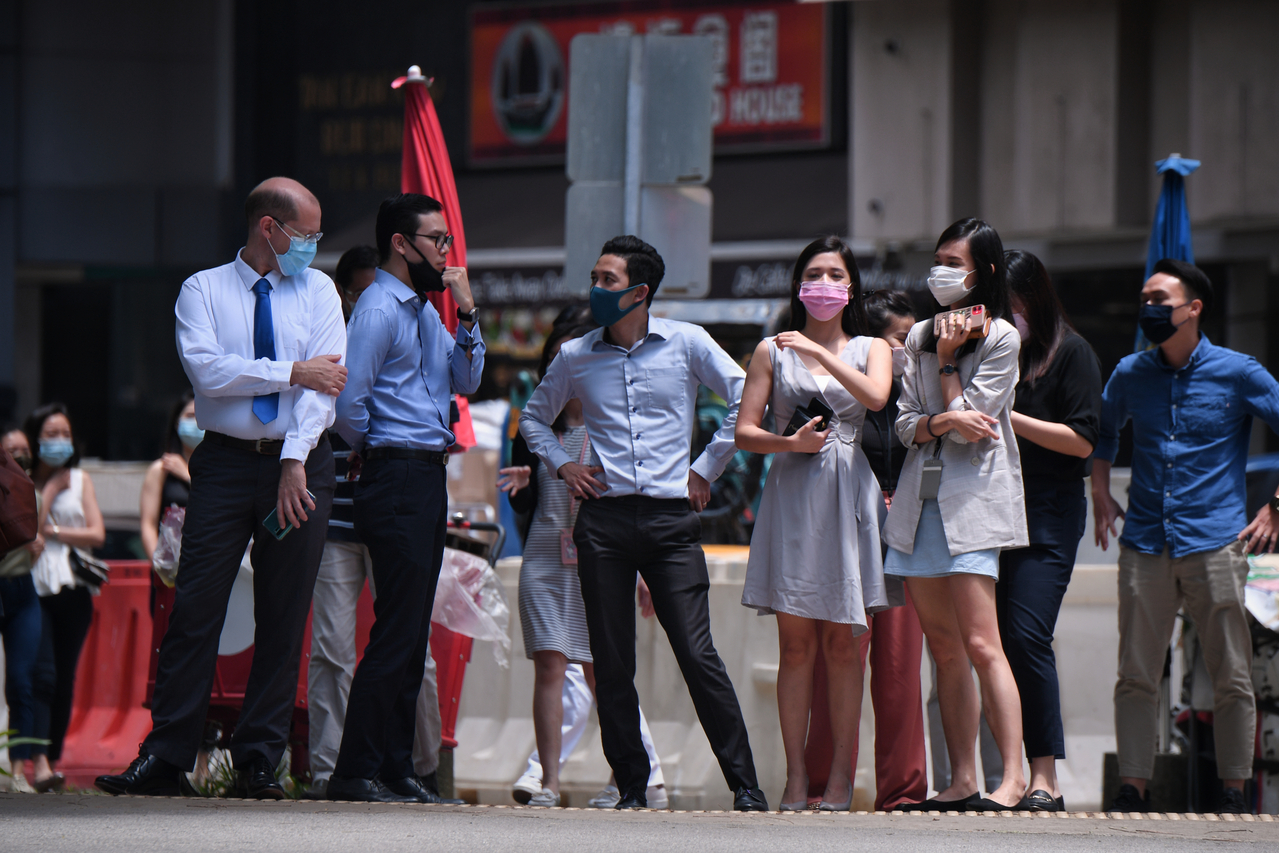Budget debate: New foreign workforce points system not about moving goalposts, says Tan See Leng
Sign up now: Get ST's newsletters delivered to your inbox

Under Compass, new EP applications must score at least 40 points in a rubric that considers factors such as qualifications and diversity of nationality in the hiring firm.
PHOTO: ST FILE
SINGAPORE - A new points-based system to evaluate higher-paid foreign professionals seeking to work here should not give the impression that Singapore is imposing "moving goalposts" for companies who wish to invest in the city-state, said Manpower Minister Tan See Leng on Monday (Mar 7).
Rather, the Complementarity Assessment Framework (Compass) announced last Friday is meant to tell the world that Singapore is open and welcoming of Employment Pass (EP) holders - as long as they help uplift the economy and strengthen the local workforce, he added.
Dr Tan was speaking in Parliament during the debate on his ministry's budget, where several MPs raised questions about the framework, which is set to kick in from September 2023.
Under Compass, new EP applications must score at least 40 points in a rubric that considers factors such as qualifications and diversity of nationality in the hiring firm. This will form the second of a two-part evaluation process, with the first being a minimum qualifying salary.
The Ministry of Manpower (MOM) has framed the move as part of its goal of upgrading the Singapore workforce, comprising a strong Singaporean core and a high-quality and diverse foreign workforce.
On Monday, Leader of the Opposition Pritam Singh asked if MOM would further consider - as part of the approval and renewal of EPs, going forward - contributions made by these workers or their companies in terms of whether there was a real transfer of skills to the Singaporean workers.
Such a bonus criteria, said Mr Singh, would address the long-term bugbear and perception of foreigners not playing their part in contributing to the growth of the Singaporean core.
"If there is some data set, some matrix that can show that that's not the case, and that there is skills transfer that can be objectively assessed, I think this will be helpful for the programme," he said.
Dr Tan said the Government was not closed off to such suggestions.
"At some stage, we will be able to continue to tweak the framework," he added. "And of course, we need to ensure that the tweaking is not done in such a fast manner that after awhile, companies who want to look into investing in our country would think that we are having a series of moving goalposts - that's not the intent."
Workers' Party MP Jamus Lim (Sengkang GRC) also asked if Compass would create an artificial ceiling for small firms, given the difficulty in attaining more points as they look to grow into medium-sized ones.
Firms with fewer than 25 professionals, managers, executives and technicians (PMETs) will automatically be scored as "meeting expectations" on the firm-related attributes of diversity and support for local employment - giving them 20 points by default.
In reply, Dr Tan said there is enough runway for companies to adapt and adjust to the framework.
"The flexibility, the nimbleness, the responsiveness of the entrepreneur, the founder, is going to be quite paramount in ensuring that the firm will ultimately succeed," he added.
"The reassurance that I want to give to all start-ups, all SMEs (small and medium-sized enterprises) - we're trying our best to support our own Singaporean business ecosystem… (But) the moment they get to a certain size, I think it is also the social compact and their responsibility to ensure that our Singaporean core continues to be supported, to be brought along with them as well."
Dr Tan also clarified that there was no quota or target number of EPs under the new move, in response to Bukit Panjang MP Liang Eng Hwa asking if MOM was obligated to approve EPs should employers meet all the requirements under Compass.
"If that's the case, would that lead to a situation where the total number of EPs issued would be even higher than before?" said Mr Liang, who chairs the Government Parliamentary Committee for Finance and Trade and Industry.
Dr Tan replied: "We are trying to make this framework a very highly differentiated system, a set of criteria which allows us to titrate, to be able to right-size, right-site and continually uplift our level of competitiveness vis-a-vis globally."
He said it was necessary to have a system where every EP holder coming in will have to pull their weight in complementing the local workforce while supporting and driving the economy.
"Compass is meant to tell the world that we are open, we are connected, and we're welcoming of foreign work pass holders to come in and work," Dr Tan concluded. "As long as they can help uplift our economy and contribute to our workforce in… strengthening the Singapore core."


